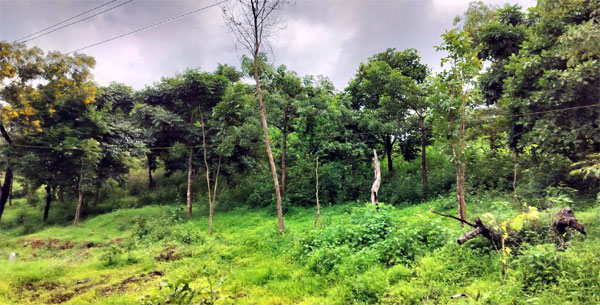Daijiworld Media Network - Panaji
Panaji, Aug 13: In a move stirring environmental concerns, the Goa State Tree Authority (STA) has approved the felling of 1,149 trees to make way for the proposed MIT-Peace University campus in Tivim. The decision was taken during the Authority’s recent meeting, with strict conditions laid out for compensatory afforestation and environmental safeguards.
The proposal was submitted by the Maharashtra Academy of Engineering and Educational Research (MAEER), which manages the MIT Group of Institutions, Pune. The university intends to build a private educational campus spread over approximately 20,000 square meters, including residential blocks and academic infrastructure, on land leased from the local comunidade.

While the Authority has permitted the large-scale tree cutting, it has mandated that the project proponent plant five times the number of indigenous forest tree species for non-Acacia trees, and three times the number for Acacia trees, which make up a significant portion of the existing green cover on the site.
Additionally, the MIT Group has sought clearance from the Directorate of Mines and Geology to clear an old iron ore mineral dump on the same land, which harbours around 614 Acacia trees. However, any felling in this zone will be subject to separate clearances from relevant authorities, including the Mines Department.
The STA has emphasized the following conditions:
• Phased tree cutting must be followed to minimize environmental impact.
• No harm to wildlife, nests, or habitats should occur during the felling process.
• A detailed plantation plan must be submitted prior to final government approval.
• All compensatory plantations must be geo-tagged for monitoring.
• Maintenance of the saplings must be carried out for five years by the project developer.
According to the STA minutes, the authority approved the felling of 1,149 trees after "thorough discussion," stating the need to balance development with environmental accountability.
This development comes amid growing concerns in Goa over the loss of forested areas to infrastructure and real estate projects. Environmentalists have previously criticized large-scale tree felling for private institutions, citing the need for ecological preservation in a state known for its biodiversity.
As the project progresses, all eyes will be on how effectively the compensatory afforestation and regulatory conditions are implemented and monitored — and whether the ecological cost is worth the promise of educational infrastructure.